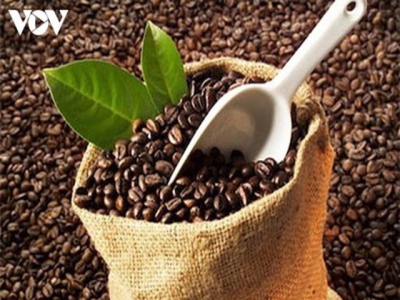EU increases purchases of Vietnamese coffee

The opening seven months of the year witnessed EU nations increase their purchases of Vietnamese coffee, including a 53.7% rise from Poland to US$23.5 million, and an increase of 20.1% from Belgium to US$74.8 million.
According to statistics from the Department of Agro-Processing and Market Development under the Ministry of Agriculture and Rural Development, an estimated 120,000 tonnes of coffee were exported in July with a value of US$213 million. This brings the volume and value of coffee exports during the first seven months of the year to 1.06 million tonnes worth US$1.8 billion, a fall of 0.1% in volume and 0.6% in value from the same period last year.
Luong Van Tu, chairman of the Vietnam Coffee - Cocoa Association, said that the EU represents the second largest market for Vietnamese coffee and accounts for over 42% of domestic coffee exports. Despite the impact of the novel coronavirus still causing numerous difficulties for the local economy and consumption, bread, milk, and coffee are still popular items with high levels of consumption among the EU. Therefore, along with the foundations put in place by the EU-Vietnam Free Trade Agreement, the coffee industry will be able to add value in the near future.
The Department of Agro-Processing and Market Development has assessed that the opening quarters of the year generally witnessed a downward trend in terms of prices. When compared to the end of 2019 however, domestic coffee prices enjoyed a surge of between VND500 to VND700 per kg after enduring a long period of very low prices.
It is anticipated that a limited supply of domestic coffee, coupled with water shortages in the Central Highlands region, will lead to lower output that will eventually drive up domestic prices in the near future.
Elsewhere, forecasts by the United States Department of Agriculture indicate a number of positive signals from major markets. Most notably, the EU is forecast to increase imports by 2 million bags to a total of 49.5 million coffee bags, a haul that makes up nearly 45% of the world's total coffee bean imports. The largest suppliers of coffee to the EU are Brazil, making up 29%, Vietnam, with 23%, Colombia, making up 7%, and Honduras, with 6%.
As the world's second largest importer, the US is also predicted to increase its import demand by 2 million to a total of 27 million bags. The leading coffee exporters to the US include Brazil, with 24%, Colombia, making up 22%, Vietnam, with 16%, and Honduras, making up 6%.
Có thể bạn quan tâm
 Vietnam's rice exports to the EU stay modest due to limited quota
Vietnam's rice exports to the EU stay modest due to limited quota Vietnam has seen modest earnings from rice exports to the EU market due to high import duties and restrictions caused by limited rice quotas provided by the EU.
 Fresh Vietnamese longan on sale in Australian market
Fresh Vietnamese longan on sale in Australian market The Vietnam Trade Office in Australia and businesses have constantly promoted Vietnamese specialty fruit and connectivity between exporters and importers.
 Cashew exports expected to prosper in the EU and US
Cashew exports expected to prosper in the EU and US Raw cashew supply has declined, oversupply situation has ended in the world market, and the Covid-19 pandemic is still a complicated situation for Vietnamese